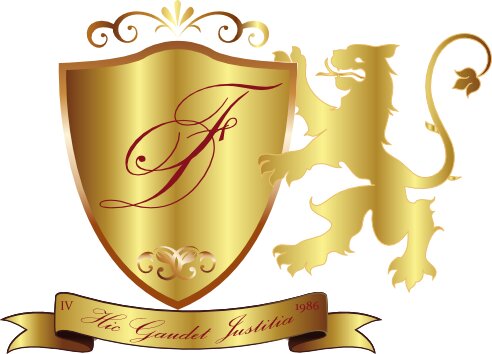Best Bankruptcy Lawyers in Turin
Share your needs with us, get contacted by law firms.
Free. Takes 2 min.
List of the best lawyers in Turin, Italy
About Bankruptcy Law in Turin, Italy
Bankruptcy law in Turin, Italy, operates within the framework of Italian national legislation, particularly the "Legge Fallimentare" (Bankruptcy Law), updated by the Codice della Crisi d’Impresa e dell’Insolvenza. Turin, as a major economic center in the Piedmont region, sees various insolvency cases involving both individuals and companies. The local courts, specifically the Tribunale di Torino (Turin Court), handle these cases. Bankruptcy proceedings in Italy aim to balance creditor protection with opportunities for debt restructuring or liquidation under judicial supervision.
Why You May Need a Lawyer
Dealing with bankruptcy is complex, and legal advice is often crucial. Common scenarios where you may need a bankruptcy lawyer in Turin include:
- Facing overwhelming personal or business debts and seeking relief or restructuring options.
- Being threatened with legal action by creditors or receiving formal notices.
- Having your company forced into insolvency proceedings by creditors ("fallimento d’ufficio").
- Needing guidance on asset protection and personal liability during insolvency.
- Seeking to understand your rights and obligations as a creditor in a bankruptcy case.
- Desiring to explore alternatives to bankruptcy, such as debt restructuring agreements.
- Confronting allegations of fraudulent or irregular business activity.
Local Laws Overview
Bankruptcy in Turin follows Italy’s national laws but is administered locally. Key aspects include:
- Eligibility: Bankruptcy is generally reserved for entrepreneurs and companies who exceed specific turnover or asset thresholds.
- Types of Proceedings: The primary forms are "fallimento" (bankruptcy/liquidation), "concordato preventivo" (creditor arrangement) and "liquidazione giudiziale" (judicial liquidation).
- Insolvency Declaration: A creditor, the debtor, or the public prosecutor can petition the court to declare bankruptcy if insolvency criteria are met.
- Role of Tribunale di Torino: The Tribunal appoints a trustee ("curatore fallimentare") to manage the debtor’s assets, notifies creditors and supervises proceedings.
- Creditor Claims: Creditors must file their claims according to strict deadlines to participate in distributions.
- Asset Management: Debtor’s assets are liquidated to satisfy creditors, following a court-approved order of priority.
- Personal Consequences: Directors and entrepreneurs may face restrictions or liability depending on their conduct before insolvency.
- Rescue Procedures: Alternatives to liquidation, like "concordato preventivo," allow debtors to propose partial repayments and continue business under court supervision.
Frequently Asked Questions
What is the difference between personal and corporate bankruptcy in Turin?
Personal bankruptcy applies to individual business owners (sole traders), while corporate bankruptcy involves companies and partnerships. Each has specific eligibility criteria and processes under Italian law. Ordinary consumers (non-entrepreneurs) may seek debt relief through different procedures.
Can anyone declare bankruptcy?
No, only entrepreneurs and companies meeting certain thresholds (such as annual turnover and asset value) can be declared bankrupt in Italy. Non-entrepreneurs may have access to alternative debt relief programs.
What is "concordato preventivo"?
"Concordato preventivo" is a legal procedure allowing insolvent businesses to propose a repayment plan to creditors, aiming to avoid bankruptcy liquidation. It must be approved by the majority of creditors and the court.
How does the bankruptcy process start?
It begins with a petition to the Tribunale di Torino by the debtor, creditors, or a public prosecutor. The court examines insolvency status and, if criteria are met, issues a bankruptcy declaration.
What happens to my assets during bankruptcy?
Once bankruptcy is declared, the appointed trustee takes control of the debtor’s assets, which are liquidated to repay creditors under court supervision.
Will I lose my home if I am declared bankrupt?
It depends. For entrepreneurs, personal assets may be included in the estate unless protected by legal exemptions. For companies, only business assets are generally affected. Legal advice can help clarify your position.
What protection do I have from creditors?
An automatic "stay" is imposed upon bankruptcy, suspending most creditor claims and enforcement actions. Creditors must file claims in the bankruptcy procedure.
Can bankruptcy proceedings be challenged?
Yes, the debtor or other interested parties can appeal the bankruptcy declaration within a specified time limit before the appropriate court.
What are the consequences for company directors?
Directors may face civil and criminal liability if found guilty of fraudulent or negligent behavior contributing to insolvency. Regular conduct and transparent cooperation can mitigate these risks.
How long does the bankruptcy process take?
It varies depending on case complexity, the number of creditors, asset values, and legal disputes. Some procedures conclude in months, while others may take years.
Additional Resources
If you require information or assistance regarding bankruptcy in Turin, consider the following resources:
- Tribunale di Torino (Bankruptcy Section): The main court handling bankruptcy cases in Turin.
- Ordine degli Avvocati di Torino: The local Bar Association can help you find qualified bankruptcy lawyers.
- Camera di Commercio di Torino: Provides information on business registration and insolvency matters.
- Agenzia delle Entrate: For tax issues connected to bankruptcy.
- Associazioni dei Consumatori: Consumer associations can assist with personal debt issues and refer you to appropriate legal help.
- Professional Insolvency Practitioners: Specialists in managing and advising on insolvency proceedings.
Next Steps
If you believe you may be facing bankruptcy or are already involved in insolvency proceedings in Turin, take the following steps:
- Gather Documentation: Collect financial statements, creditor communications, court notices, and any business records.
- Consult a Specialist Lawyer: Contact a lawyer experienced in bankruptcy law in Turin to discuss your options and receive tailored advice.
- Act Promptly: Many procedures have strict deadlines, particularly for filing claims or responding to court notices.
- Engage with Creditors: Where appropriate, seek to negotiate repayment terms or settlements under legal guidance.
- Assess Alternatives: Your lawyer can inform you about potential alternatives to bankruptcy, such as out-of-court settlements or restructuring plans.
- Follow Legal Procedures: Cooperate fully with the court, trustee, and your legal representatives throughout the process.
Lawzana helps you find the best lawyers and law firms in Turin through a curated and pre-screened list of qualified legal professionals. Our platform offers rankings and detailed profiles of attorneys and law firms, allowing you to compare based on practice areas, including Bankruptcy, experience, and client feedback.
Each profile includes a description of the firm's areas of practice, client reviews, team members and partners, year of establishment, spoken languages, office locations, contact information, social media presence, and any published articles or resources. Most firms on our platform speak English and are experienced in both local and international legal matters.
Get a quote from top-rated law firms in Turin, Italy — quickly, securely, and without unnecessary hassle.
Disclaimer:
The information provided on this page is for general informational purposes only and does not constitute legal advice. While we strive to ensure the accuracy and relevance of the content, legal information may change over time, and interpretations of the law can vary. You should always consult with a qualified legal professional for advice specific to your situation.
We disclaim all liability for actions taken or not taken based on the content of this page. If you believe any information is incorrect or outdated, please contact us, and we will review and update it where appropriate.











